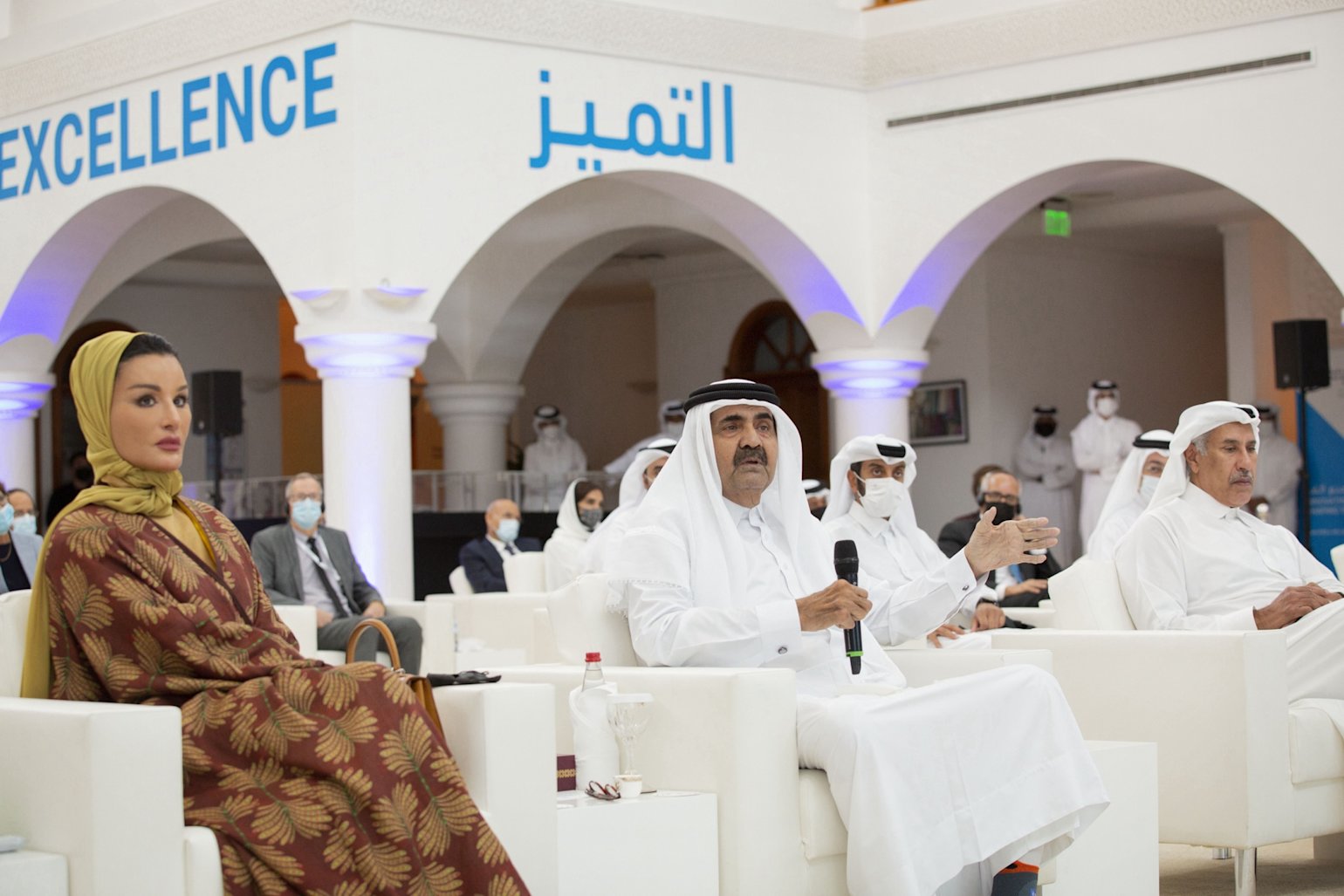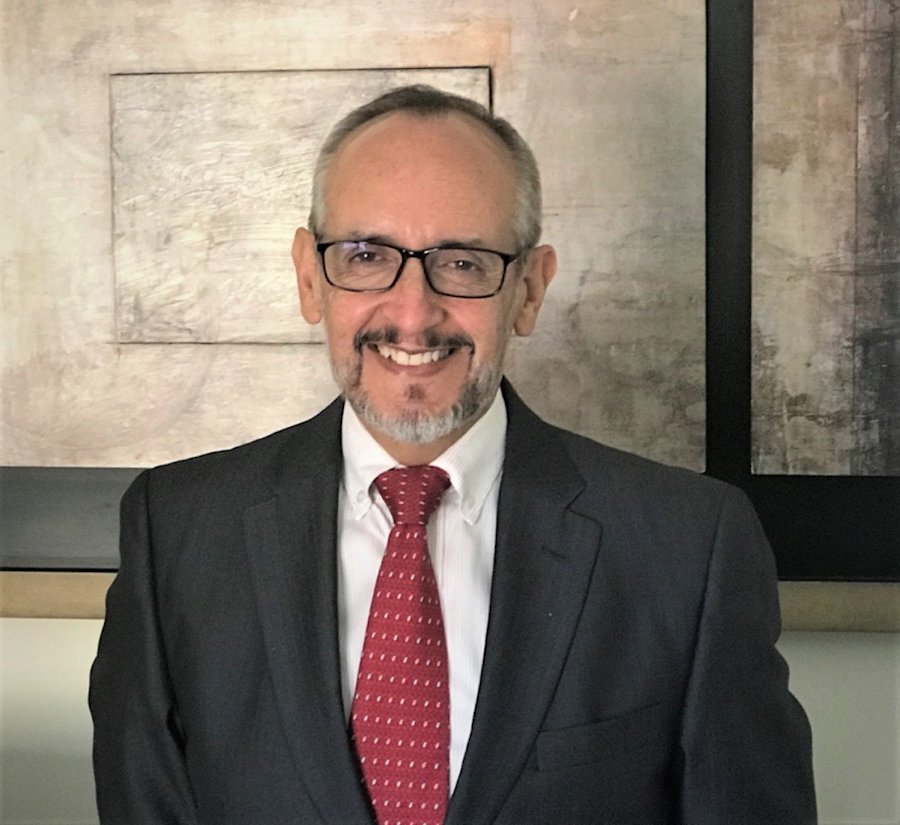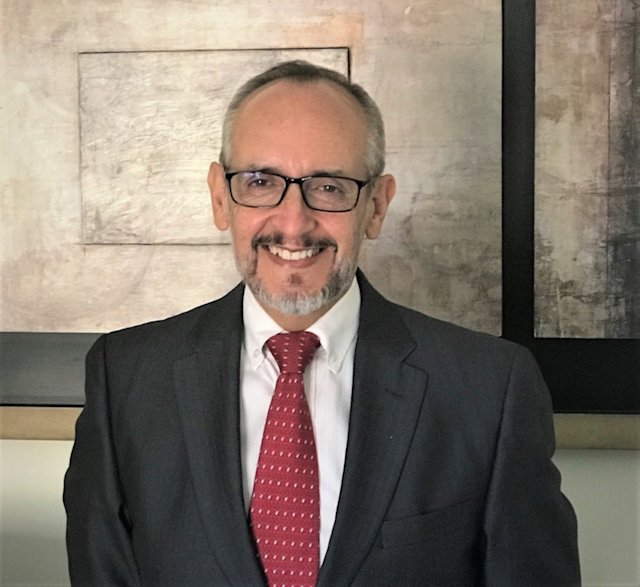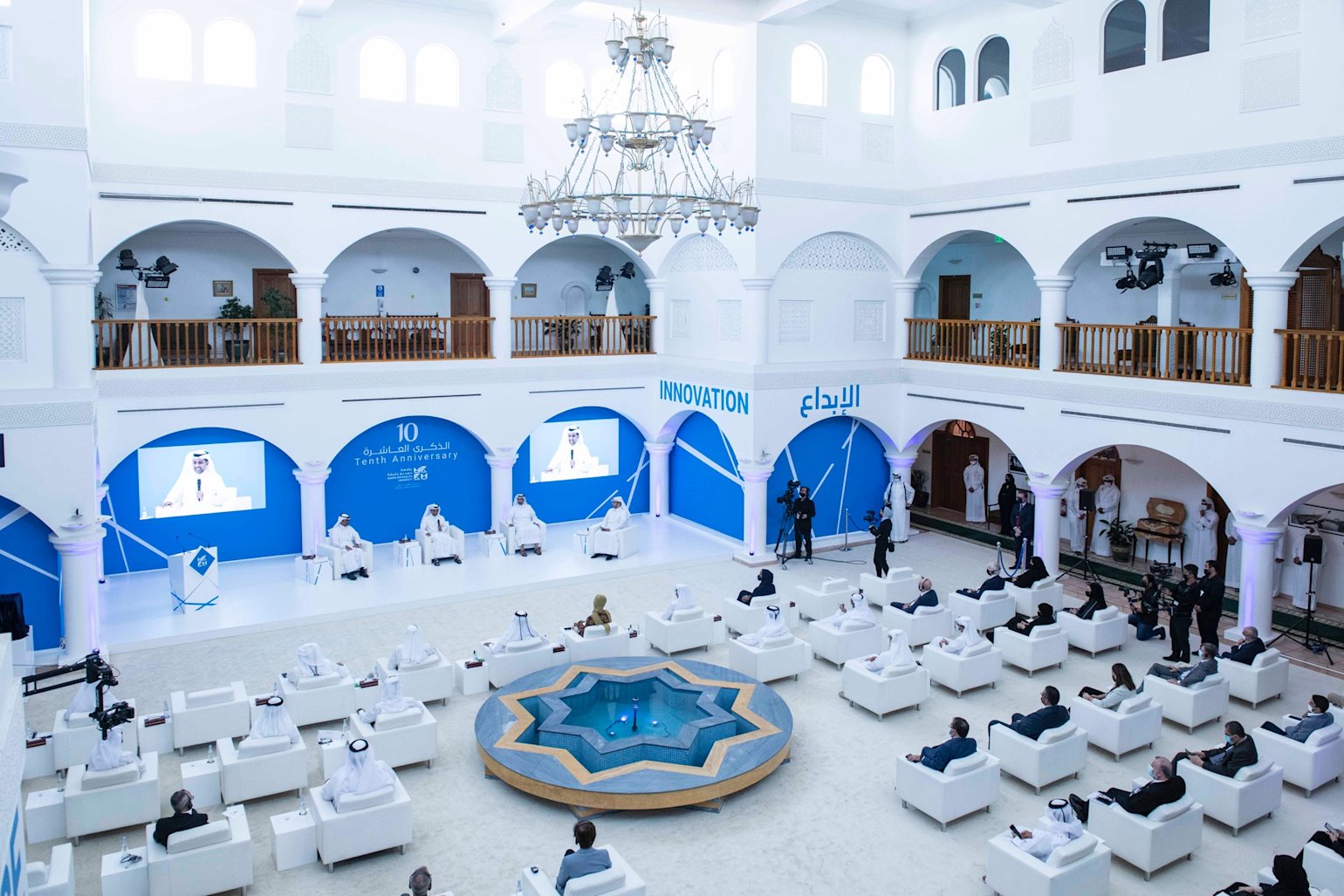Coronavirus (COVID-19) Updates
For the latest COVID-19 information and updates from Qatar Foundation, please visit our Statements page

On Hamad Bin Khalifa University’s 10th anniversary, Francisco Marmolejo, QF’s President of Higher Education, speaks about how it has assumed a pivotal role within the Education City ecosystem of knowledge.
As it marks its 10th anniversary, what Hamad Bin Khalifa University has become reflects the role that Qatar Foundation envisioned for it: a university serving Qatar and its people as a pioneer in education, and a hub of research, innovation, and collaboration with a focus that is fully aligned with Qatar’s economic, social, and human needs.

His Highness Sheikh Hamad bin Khalifa Al Thani, the Father Amir, and Her Highness Sheikha Moza bint Nasser, Chairperson of Qatar Foundation, at HBKU’s 10th anniversary commemoration.
Speaking about how Hamad Bin Khalifa University (HBKU) came into being, and the place it would occupy within QF’s unique ecosystem of knowledge was identified, Francisco Marmolejo, President of Higher Education at Qatar Foundation, said: “Ten years ago, Qatar Foundation recognized the need to move the higher education we offer forward – to establish an institution that could complement our international partner universities that were already in place at Education City.


Qatar Foundation had a vision for an institution that would aspire to be competitive on a global scale, while remaining highly relevant in a local context
“Qatar Foundation had a vision for an institution that would aspire to be competitive on a global scale, while remaining highly relevant in a local context; able to produce the talents that Qatar needed in advanced fields; and also capable of conducting research activities in an effective way.”
Mr. Marmolejo explained that, at the time, although QF’s partner universities offered higher education programs for undergraduate levels in specific fields, there remained a missing component – a component QF was determined to provide. “We wanted to build strong and robust graduate education,” he said, “with programs that, as well as offering graduate degrees, were also strongly connected with the nation’s research and development priorities.”
Typically, new institutions are able to move faster than traditional institutions when it comes to challenging traditional notions, challenging assumptions in higher education, and in proposing new ideas
QF also saw significant value in having a homegrown university that was capable of the flexibility which, in turn, enables and embraces innovation, according to Mr. Marmolejo. “Typically, new institutions are able to move faster than traditional institutions when it comes to challenging traditional notions, challenging assumptions in higher education, and in proposing new ideas,” he said.
“With higher education institutions, practices, traditions, history, and regulations can slow progress at times. Having a homegrown university which is flexible and can connect with other international institutions within our ecosystem provides us with a unique opportunity to innovate, in many ways.”
This flexibility has been evident at HBKU during the pandemic, with Mr. Marmolejo emphasizing the “outstanding” nature of its transition to remote teaching, learning, and research when compared with higher education institutions globally. “We recently studied the connections of higher education institutions with schools during the pandemic, analyzing the cases of 16 different countries,” he said.
This reflects the elements of flexibility and connectedness to the community that are part of HBKU, and that position it to contribute ever more effectively to unlocking potential
“In the case of Qatar, these connections were very significant, and especially for HBKU in the way it connected with schools within and beyond Qatar Foundation, providing novel research that also helped parents support their children’s learning during the pandemic. This reflects the elements of flexibility and connectedness to the community that are part of HBKU, and that position it to contribute ever more effectively to unlocking potential and to realizing the goals of Qatar Foundation.”
“And preparing the next leaders of society, who are capable of working anywhere in the world and, just as importantly, are good citizens with strong values and a strong sense of community, is another fundamental part of Qatar Foundation’s vision for HBKU that has been realized.”

HBKU’s 10th anniversary commemoration looked to the past and the future of QF’s unique homegrown university.
Looking to the future, Mr. Marmolejo says the aim is to further enhance collaboration between HBKU and QF’s partner universities and with other higher education institutions in the country, “We are studying the possibilities of having more academic programs that are jointly developed, where students can take a major at one university at Education City while taking a minor at another,” he said. “In collaborations of this kind, HBKU represents a vital player.”
“Through our new higher education strategy at Qatar Foundation, we are focusing on flexibility and having a student-centric education ecosystem which is connected to the needs of Qatar and the region to an even greater degree. To achieve the goals of this strategy, we count on the support of our partner universities – and, crucially, we count on our own higher education institution, Hamad Bin Khalifa University.”

